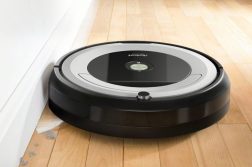It’s been 17 months since Amazon agreed to buy iRobot for $1.7 billion. The subsequent year and a half has unfolded at a glacial pace, as the deal has inched forward. Analysts anticipated that the retail giant’s purchase of the home robot pioneer would face a good bit of regulatory scrutiny, though few expected the process to drag on quite this long.
Key Takeaway
The European Commission is poised to vote against Amazon’s acquisition of iRobot, citing concerns about anti-competitive practices. The protracted review period has taken a toll on iRobot, leading to financial struggles and significant layoffs.
European Commission’s Decision
The deal’s latest hurdle is the European Commission, which has set a February 14 deadline to reach a final decision. According to a new report, the EU regulatory body is set to vote against acquisition, citing the perceived anti-competitive nature of the deal. Last week, Amazon missed a deadline for submitting concessions to the European Commission. The Wall Street Journal notes that Amazon was made aware of the Commission’s intentions in a recent meeting. The deal has already made it through a series of regulatory hurdles, including the equivalent U.K. body.
iRobot’s Struggles
The protracted review period has tested iRobot’s fortitude. In July, Amazon announced that it was lowering its asking price from $61 to $51.75 per share. The news arrived as the Roomba maker raised $200 million in debt, in order to keep things moving at the company while waiting for the deal to close. If the acquisition eventually goes through, that debt will be transferred to the new parent company. The day the initial deal was announced, iRobot cut its headcount by 10% — around 140 people – as part of a restructure. The company laid off another 85 people in February. iRobot’s stock price also continues to reel from the delays. As of this writing, share prices have dipped below $20 – one-third of where things were when the deal was announced.

























